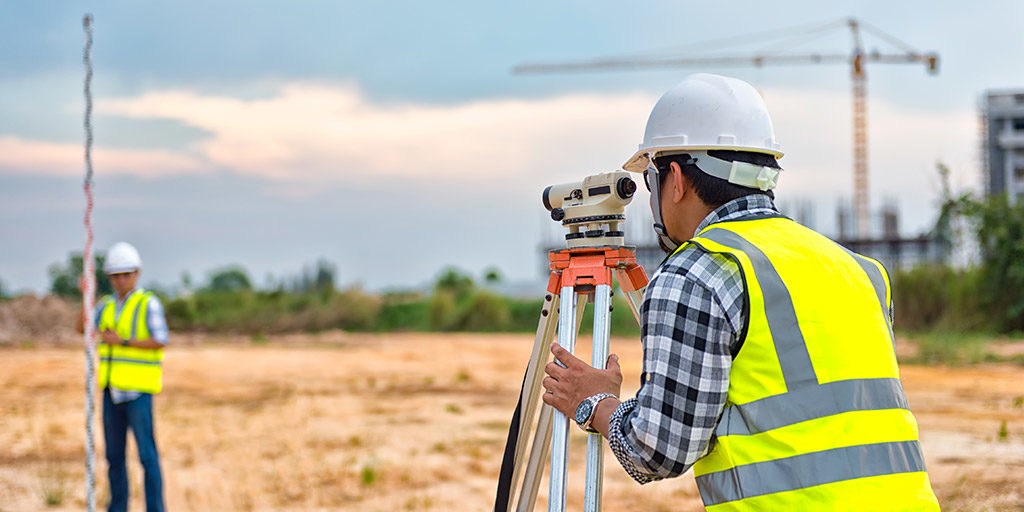
Apprentice land surveyors work in the most advanced, specialised surveying professions, contributing to various civil engineering and construction projects.
As a land surveyor, you will measure and collect data on specific areas of land, such as boundaries, buildings, and natural and man-made characteristics. In addition, surveyors document the geometry of the ground so that detailed site plans may be developed for several purposes, including geographical information systems (GIS) and offshore engineering and exploration.
You’ll also inspect renovated property and survey several areas, including airports, landfills, mines and quarries, and pipeline and distribution networks. The term ‘geomatics’ is more often used in the business than ‘land surveying.’
Responsibilities
Throughout your apprenticeship, you may help:
- collect and analyse data to map the land for civil engineering and construction projects
- carry out surveys and identify potential effects of construction on the environment
- use GPS and surveying instruments
- use digital images and satellite photos
- collect and analyse data using geographic information systems (GIS)
- monitor land movement as a result of construction and natural processes
- create charts and maps using computer aided design (CAD).
Salary
- Starting salaries for apprentice land surveyors are £20,000 to £25,000.
- Experienced surveyors with chartered status earn £25,000 to £45,000.
- At senior level, with management or partnership responsibilities, surveyors can earn salaries of up to £70,000.
Working hours
Working hours are mainly 9am to 5pm between 38 to 40 hours a week, but this varies between locations and may not be the case when work is based overseas. Longer hours, weekend or shift work may sometimes be required to meet deadlines.
Working environment
You could work in an office or on a construction site.
You may need to wear safety clothing and use safety equipment.
Qualifications
Qualifications you can achieve as an apprentice land surveyor include:
- Level 6 Geospatial Mapping and Science Specialist – Entry requirements for this level include 4 or 5 GCSEs at grades 9 to 4 (A* to C) and A levels, or equivalent, for a degree apprenticeship. This qualification takes 60 months to complete.
Skills
On a land surveyor apprenticeship, you’ll learn:
- maths knowledge
- knowledge of engineering science and technology
- knowledge of geography
- analytical thinking skills
- to be thorough and pay attention to detail
- the ability to use your initiative
- excellent verbal communication skills
- thinking and reasoning skills
- to have a thorough understanding of computer systems and applications.
Employers
Your skills as a land surveyor are required by a multitude of organisations in both the private and public sectors, including:
- construction companies
- engineering contractors and consultancies
- geophysics consultancy companies
- government agencies
- local authorities and central government
- mining companies
- rail companies
- utilities companies
- the Ordnance Survey (OS).
Professional development
Many land surveyors choose to obtain professional certification and chartered status after starting their careers.
You must pass the Assessment of Professional Competence to become a chartered RICS (APC) member. This is organised around certain activities relevant to your chosen surveying field. You must also have at least two years of experience in your field to pass the APC.
Professional certification is also available through the CIOB.
Employers will provide both basic job training and specialised education on using specialised equipment. Some surveyors choose to pursue an appropriate postgraduate degree, which may help them grow in their careers.
As a land surveyor, you must regularly update your skills and knowledge due to rapid technological developments. This is why CPD (continuous professional development) is so important in the workplace.
RICS, CIOB, and ICES provide a wide range of seminars, conferences, and courses.
